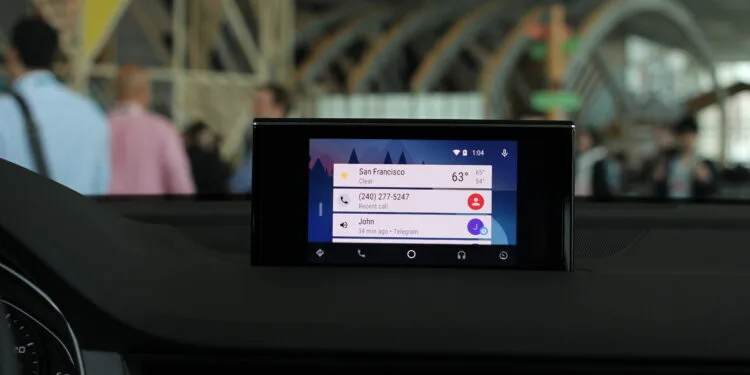Brussels – For now, it is only a preliminary opinion, which will then have to be considered by the European Union judges in their ruling. Nevertheless, it opens a window to the umpteenth sentence against Alphabet, Google’s parent company, for violating European competition laws that the EU Court of Justice could impose. The case in question is the one opened by Enel in Italy, which in 2018 was denied by the California-based company access to the Android Auto platform, on which the energy group wanted to operate to provide charging services for electric vehicles.
The controversy arose when, six years ago, Enel asked Google to make it compatible with Android Auto—an application, installed on mobile devices using the Android operating system, that allows using some smartphone applications from the car’s built-in screen—its own JuicePass app, which offers features for charging electric vehicles. Now, there usually is the possibility for third-party developers (such as precisely Enel) to create their versions of the applications they wish to make compatible with Android Auto using software templates provided directly by Google for this purpose.
But when Enel asked the U.S. colossus to develop a specific template for applications such as JuicePass (until then, templates included only multimedia and messaging apps), Google refused, citing alleged security concerns as well as the need to allocate resources for the creation of new templates in a “rational” manner. At that point, the Italian energy company appealed to the competition and market regulator (AGCM), which concluded that the behaviour of the digital giant (which hindered the inclusion of JuicePass on Android auto) stood in violation of EU competition law, amounting to a case of abuse of dominant position.
Google had challenged this decision before the Italian Council of State, which referred the matter to the Court of Luxembourg. In the conclusions published Thursday (Sept. 5), Attorney General Laila Medina thus basically supported Enel‘s arguments, noting that “the platform to which access is sought was not developed by the dominant company for its exclusive use, but was conceived and designed to be powered by applications from third-party developers” which cannot be impeded except for objective reasons.
“The refusal by the dominant company to grant a third-party operator access to a platform such as the one in question may be objectively justified if the requested access is technically impossible or if it may affect, from a technical point of view, the performance of the platform or stand in contrast to its economic model or economic purpose.” “However,” Medina’s note continues, “the mere fact that, in order to grant access to such a platform, the dominant company must (…) develop a software template that takes into account the specific needs of the operator seeking access cannot in itself justify a denial of access.”In short, according to the Advocate General, it is Google’s responsibility to create the missing template to allow Enel to access Android Auto. It will now be up to the judges of the Court to make a final decision on the issue, issuing a ruling that the Council of State will then have to observe, which will also make case law for other member states.
English version by the Translation Service of Withub




